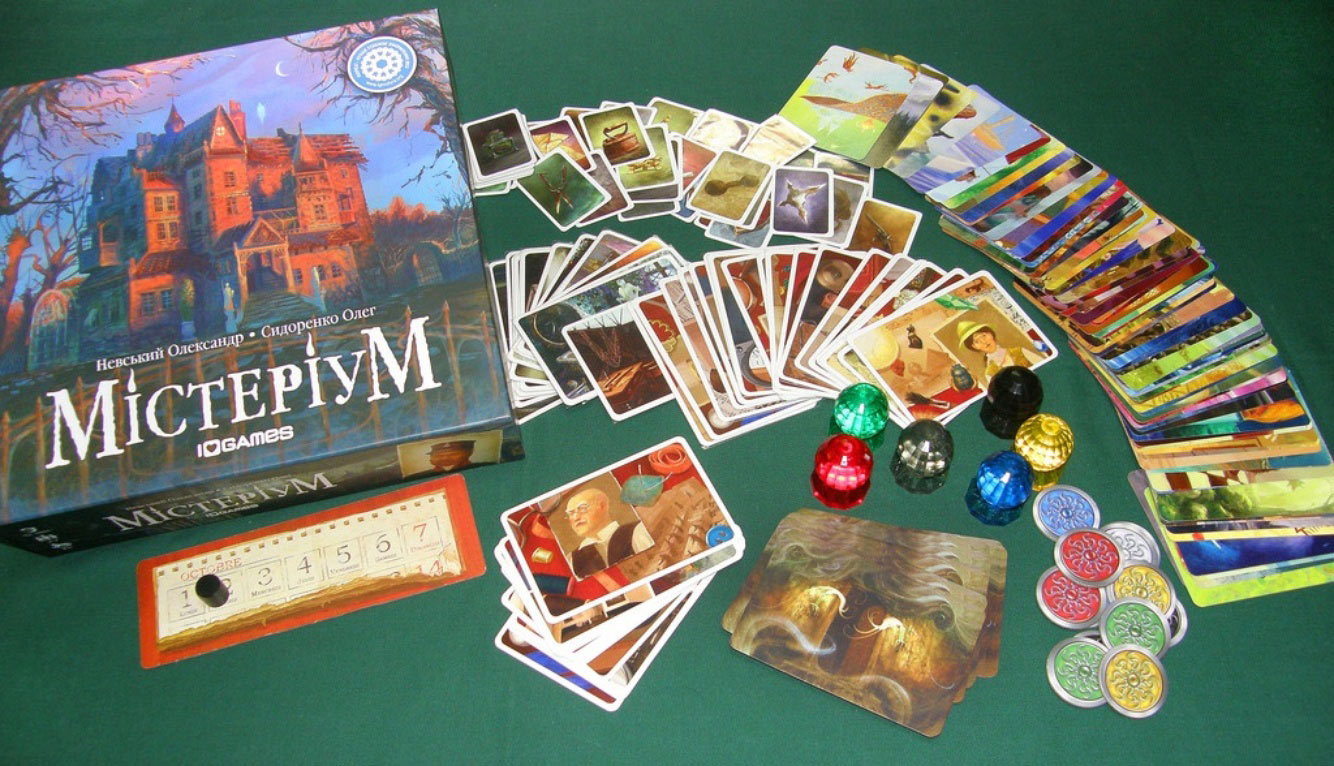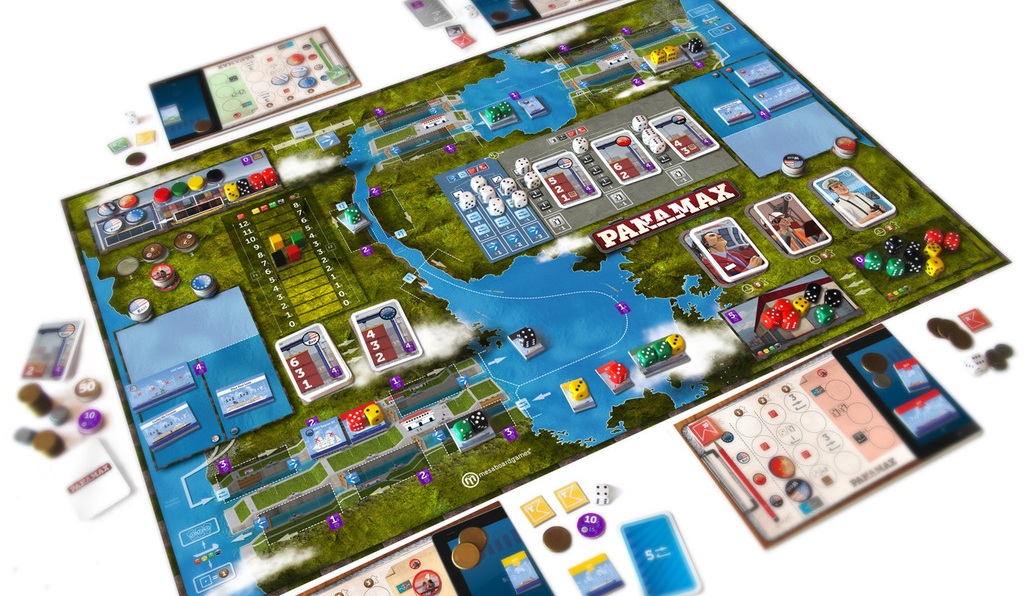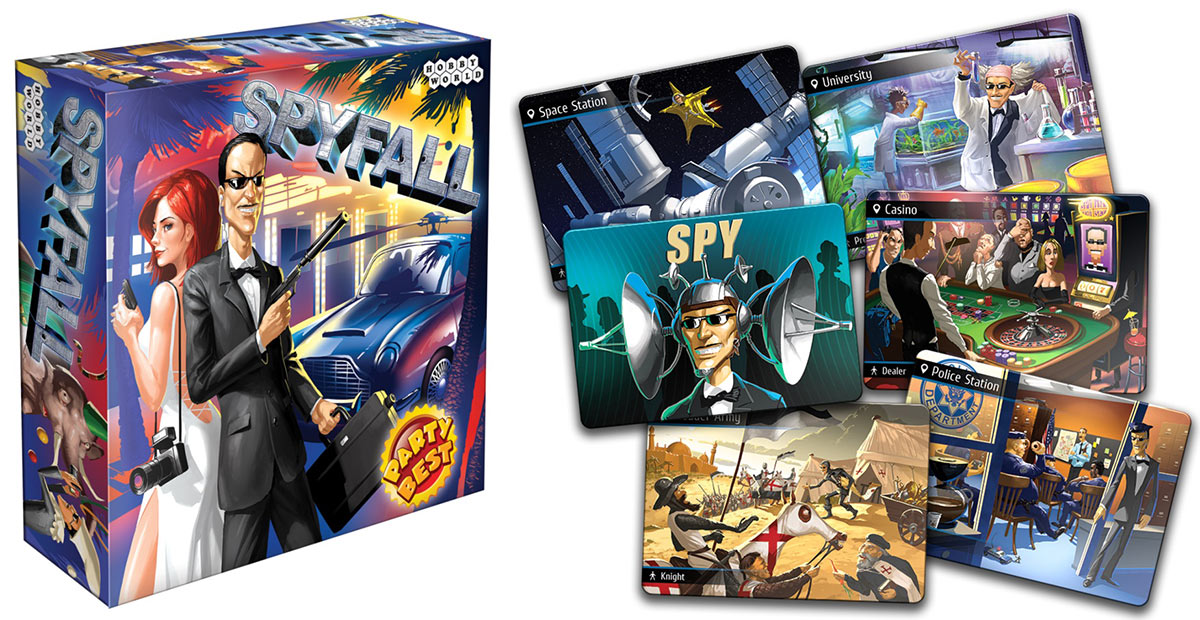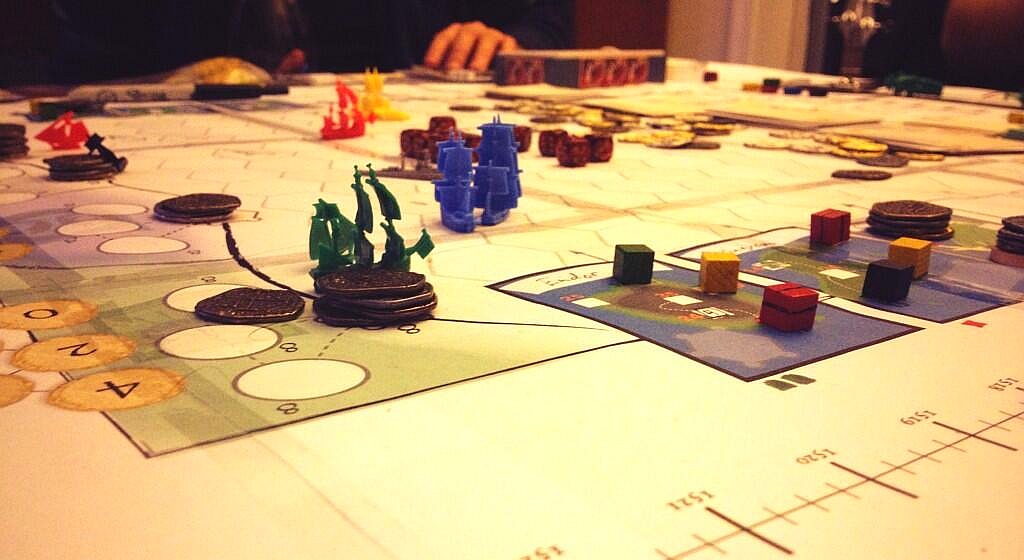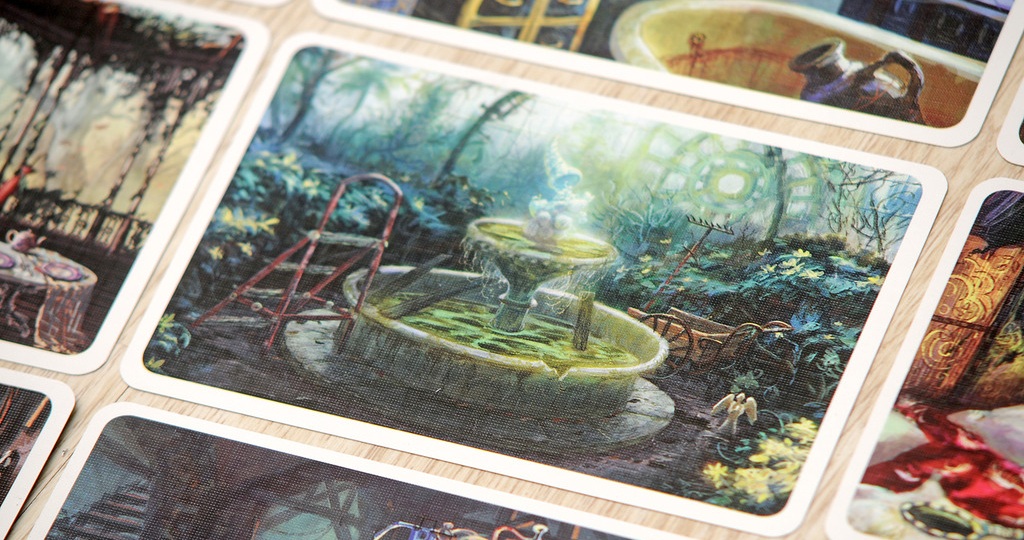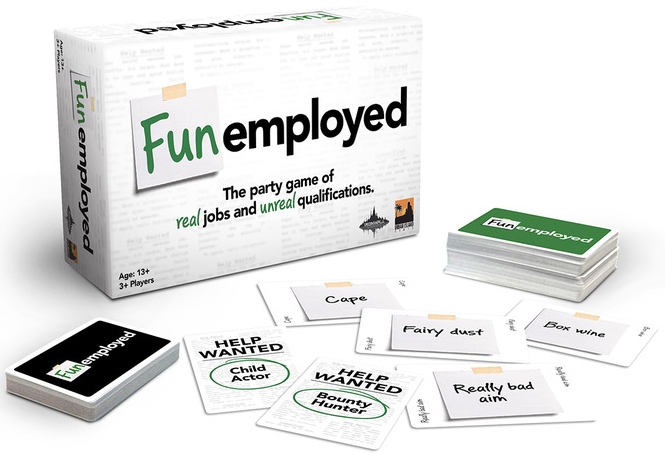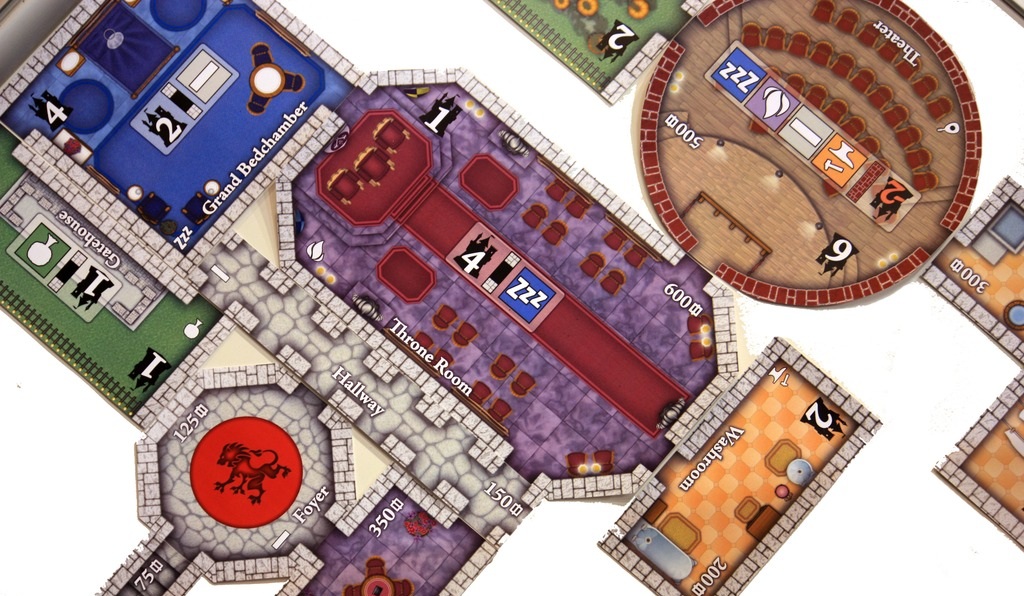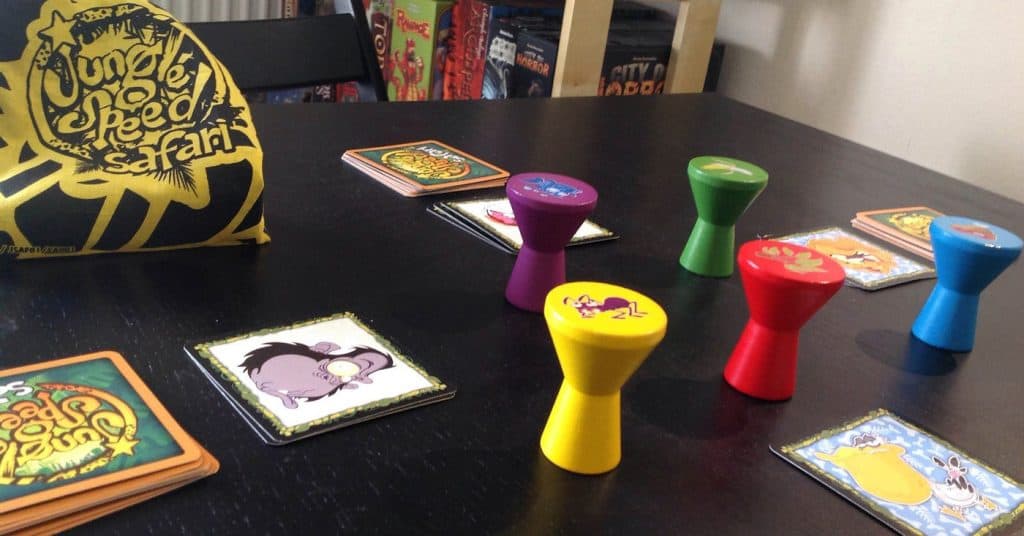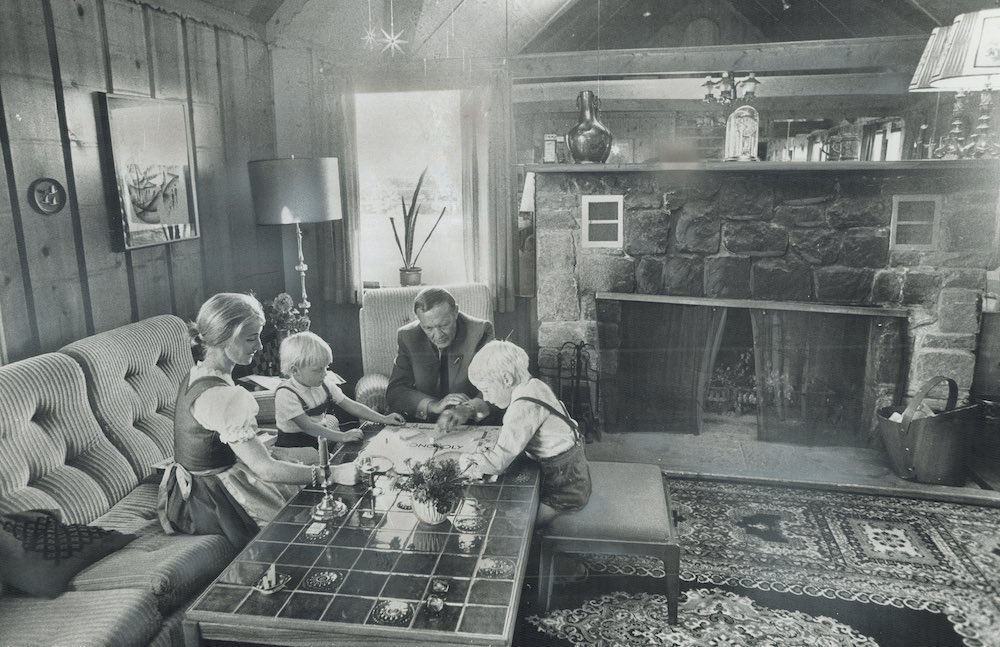Paul: Well goodness me, I’m as beaten as a leather strap, as worn as two-week old jerky, but I sure got my fill of board games at BoardGameGeek Con the other week. Between grabbing some footage of the event (give me a week or two to edit that!) and running the site remotely from the US of A (nobody died, but Millicent did lose another tentacle), I sat down to play games with friends old and new. Here’s the six best new games that found a place in my heart during my time down in Texas.
Panamax
So I have this strange thing whereby I don’t much care for the beach, or maybe even the sea, but I like ships. I like ships because they take you places (going to just about any place is frequently a plus, unless that place is a gallows or a urinal test facility), because they rock about sometimes and because they’re basically a lot like happy little houses that have been let off the leash. The ships in Panamax are more like happy little warehouses or even mansions, as they’re great big things that carry dice back and forth across the Panama Canal. The ships can belong to you and the dice can belong to you, but when the contracts come, there’s little to stop other players loading their cargo onto your ships, nor any particular reason why they should bother to move one of their ships when it only has your own cargo on board. Y’see, Panamax is all about shifting things from one side of the Panama Canal to the other. As long as you complete a contract, you get paid. It doesn’t matter how.
Things are further complicated by how ships move through the canal, shunting one another like merry little bumper cars through the locks that make up the map. A ship entering a lock can move all of those that are lined up ahead of it (God, I wish queues worked that way), meaning a single move can actually be a way to get a whole seatrain going, perhaps intentionally or not.
So all you’re really trying to do in Panamax is move cargo, via your ships or others, directly or indirectly, while also trying to make more money for yourself than you make for your company, a company which you or other players may have bought stocks in. Is it complicated? Not as much as you think, though the manual was a horror and thankfully we had Tiffany Ralph there to guide us back and forth through a rather pleasant Panama Canal.
Spyfall
I already mentioned Spyfall in the Games News, but I just have to mention it again because, ohmygoodness, it’s a game you should at least try, a game you have to play once if never again.
I have a feeling that, as with many social, talkie games, your mileage might vary according to who you play with. Spyfall is all about guessing things based on indirect clues, just or frantically, furiously equivocating. Those are both things which I think make it hilarious, but you might prefer lining up sheep or vegetables. This is never going to be the game for you.
If you do want a comedy version of The Resistance, then why not have a game where every player but one knows where they are? By asking questions relevant to their location (“Do you like the weather here?” “Do you come here often?” “What’s your favourite landmark?”) they all try to work out who the one clueless character is. Meanwhile, that poor soul is racing to first guess exactly what the location is from the big list in front of them. Are they in the desert, on a space station, a school or a military base? Did someone ask a question, or provide an answer, that gives away either their ignorance or the fact that everyone’s in a submarine? ARE THEY THE SPY? Brilliant.
Seafall
On the subject of things mentioned in Games News (and also falling), I have to talk to you a little more about Seafall. Following Risk Legacy and Pandemic Legacy Rob Daviau’s next ever-evolving game is all about exploration and colonisation.
If you’ve not played Risk Legacy, then let me quickly explain that. It’s a game that changes each time you play, as players customise it, adding or altering parts of the game so that it plays differently the next time you open the box. It’s a process between mutation and personalisation. Pandemic Legacy is set to do the same to the co-op classic Pandemic. Seafall, however, is a wholly new thing. New systems. New ideas. New possibilities.
In the test game we played, using a prototype version that already felt very intriguing, we each took control of a pseudo-Renaissance power that sent ships west to examine a handful of distant islands. Landing there, we could explore them, try to seize their resources or consider friendlier, less destructive approaches. Back home, we were also developing our economies and improving our infrastructure. We could potentially have raided one another, though player conflict never got that direct and we ended up much more interested in hiring elite captains for our ships, or plundering gold from the shores we landed on.
Seafall was fascinating. Exploring new locations had us referencing specific short paragraphs of text, in an Tales of the Arabian Nights-style experience, some of which lead us on to difficult choices. We began to improve our navies and grow our nations. Apparently, this was only just the beginning. Apparently, Daviau said, a lot more was coming and some of it might be very, very unexpected…
Mysterium
This game (also pictured at the head of this article) was probably the sleeper hit of the con, or perhaps the game that lost people the most sleep. Coming in a box that boasted the Polish title Tajemnicze Domostwo and played by groups interpreting various an unofficial translations of the rules (each group doing it slightly differently), Mysterium intrigued people well into the night. Actually, I don’t think I ever saw it played during daylight hours. That makes sense.
So, as I understand it, Mysterium is rather like Dixit meets Cluedo. One player is a ghost sending messages to the others. The messages are about death. The messages tell you who committed a murder, where they did it and what they used. The problem is that this ghost must, as all ghosts do, communicate all this information entirely through cards with pretty yet abstract or bizarre scenes painted on them. Did the murder happen outside? Maybe the ghost passes you a card that has some grass on it. Or something green, to give the idea of grass. Or a building, but a building that is outside, because… wait. All buildings are outside, right? Hang on, this one has a ball in it. Maybe that means the murder weapon was a… musketbaaaaaaall…
You only get so many chances to guess, but the ghost only has so many cards to pass out to all the players, each of which is guessing their own separate murder. No two players are guessing the same, so you work together and find yourself saying absurd things like “If this card means the police officer did it, because it’s blue, the blue on your card is probably irrelevant and the bird means, er, I guess a pigeon in the rafters of a station?” Further complications ensue as you complete different challenges at different speeds, so some of you are still guessing the weapon, others have moved onto the location or even killer. Meanwhile, the ghost sits there glaring at you, because they aren’t allowed to say anything. Shh, ghost. Shh.
Funemployed
Also, I hate Rob Daviau. He gets to come up with the Legacy games and Seafall, but then gets to publish Funemployed. Remember Quinns giggling about this one in our Gen Con roundup? I want to talk about it too.
Funemployed had us trying to apply for what aren’t exactly ideal jobs while expressing characteristics that are almost certainly not desirable. I had to pitch myself for employment while high, gassy or just… actually, I don’t want to tell you. It requires a mix of roleplaying and frantic improvisation, as you try to present yourself as both a viable candidate and an entertaining, even surprising character. You draw cards and they tell you who you are. One player (or perhaps more) will sit in judgement as you put yourself forward as a combination of mostly embarrassing or ridiculous parts. How exactly do you choose to play the “Nothing left to lose” card? Subtly? Desperately? As the punchline at the end of a spiralling monologue?
What struck me most about Funemployed, as well as the brilliant narratives it gave us, was how coveted it was (though a second edition is on the way). Several people described it as like Cards Against Humanity, but funny, saying that Cards Against Humanity just gives you punchlines, while Funemployed gives you the set-ups and lets you knock ’em home however you like.
It’s also less offensive than Cards Against Humanity, though that’s going to be partly in how you play and perform those cards and players may want to take some out of the deck beforehand. Could “Indian Accent” be performed in a stereotypical, even offensive way? Perhaps. While I found “British Accent” ridiculous and I wasn’t at all bothered by it, racism doesn’t always cut both ways. And I certainly never knew what to do with the “Bitches” card except discard it. That’s not for me, but I do understand that friends playing together can enjoy a safe space.
Castles of the Mad King Ludwig
Oh my God I want this game.
It’s not because I’m a Romantic who adores Caspar David Friedrich and who wants to marry a castle and have little bergfried babies. It’s because this is Suburbia, but funnier and better and funnier and it has castles in and you can have a mold room next to your secret lair.
Like Suburbia, it’s a game of laying tiles next to one another to gradually build a stony home. Surrounding certain rooms, or putting particular things next to each other, gives you bonuses or sometimes even penalties. The piano room is noisy right next to a bedroom. The kitchen will work best down the hall. Unlike Suburbia, however, nothing is a hex and rooms are all sorts of shapes and sizes, meaning you create wonderful and dreadful and downright stupid places to live, the kind of castles that are drawn by a seismograph that a) just became sentient and b) just discovered alcohol c) just joined the navy to practice carrier landings in rough weather.
Bits of castle appear on a lineup like a collection of malformed and malapropos mugging suspects, all waiting to be claimed. Each turn, one player gets to rearrange this shopping selection, making some more or less expensive according to what they or everyone else might or might not want. You grab some stairs or a big hall or a weird tiny room that doesn’t really do anything. What have you just done? It doesn’t fit. It doesn’t fit! WHY DOES YOUR BEDROOM HAVE A PANTRY.
See you all next year, I guess! I’ll be staying in the Coach House, right next to The Pit.

